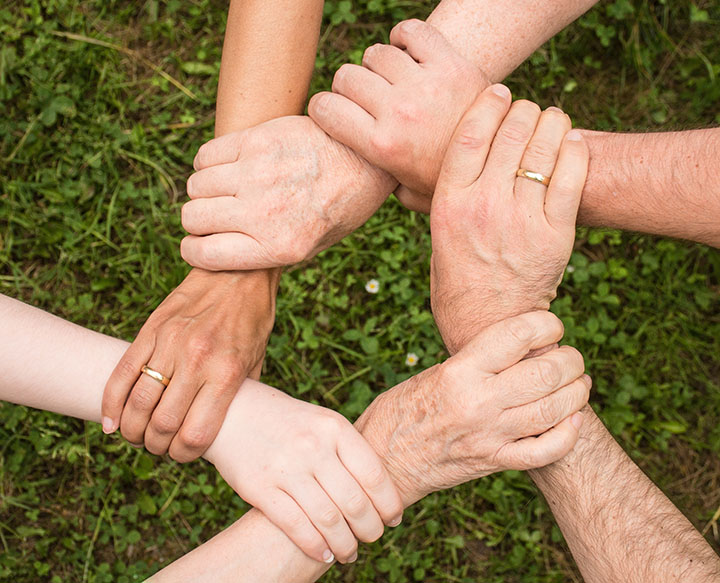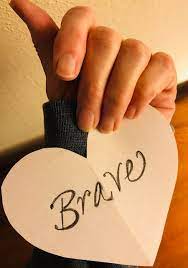I listened to a podcast over the weekend about creating an engaging work culture. One word that stood out: TRUST. Why haven’t I been talking about how intertwined trust and burnout are?
The role trust plays in becoming and being burned out is significant. After sitting with my thoughts about trust and burnout for a while, a lot of feelings came up for me that made even more sense.
Have you ever thought about how, why, or if you trust your boss? Or, how, why, or if you trust an employee? A company? Your colleagues?
I’m sure in the back of your head you’ve had some kind of conversation about why you do or don’t trust someone. Maybe they did (or did not) do something or they just give off an air of untrustworthiness. Maybe they use way too many emojis when responding to a message or email*.
(*Personal problem: I worked with a freelancer many moons ago that used so many emojis, it was hard to decipher if she knew how to communicate using actual words or not. I found it hard to trust her. Not a shock because of the role clear, transparent communication plays in the ability to trust.)
Why Do We Or – Don’t We – Trust Each Other?
Trust is a belief. It is the belief that a person/organization is good and honest. It has limits and conditions, but it doesn’t mean you don’t believe that someone can’t make a mistake.
The benefits we get from trusting other people outweigh the occasional betrayal.
The value in trusting is that you don’t have to verify everything that crosses your path – verifying everything would be overwhelming and time consuming. Trust allows you to collaborate, approach new ideas, and increase your impact on the world around you.
But, in order to trust, you have to be vulnerable. You have to be vulnerable to another person’s or organization’s actions. You have to believe that this person or organization will not harm you.
It’s this required vulnerability that is often a barrier for many and this is where the second-guessing, the micro-managing, surveillance, and gossip arise. And when that vulnerability is breached or the trust is not felt, there can be an overwhelming about of self-doubt and stress.
Trust And The Workplace
A lack of trust in the workplace is a breeding ground for toxicity. It usually starts in leadership and spreads through an organization like a virus. And, a lack of trust is often at the core of many dysfunctional organizations.
Not all leaders intentionally destroy trust. Many don’t even realize they are doing it.
Once trust is lost, it can take a lot of time and work to get back.
We often focus on the leader needing to earn the trust of their team, but an employee also needs to do their part in earning the trust of their leader. Trust will always be two-way or reciprocal. In order for an organization to be healthy, there are three different levels of trust that need to occur:
- The team must trust the leader
- The leader must trust the team members
- The team members must trust each other
What Does All Of This Have To Do With Burnout?
A lack of trust in the people you work with, the people who lead you, or the organization you are a part of is very stressful. Working in an environment where you are not trusted or you don’t trust other people not only affects your stress levels, but it erodes your belief system. You begin to believe that things won’t get better or that you aren’t effective. That lack of trust makes you feel like you don’t have control or influence over the outcome of your work.
These are all cornerstones of the burnout experience. As I mentioned before: trust and burnout are very intertwined.
When you are physically, mentally, and emotionally exhausted you are far less likely to interact with others effectively or meaningfully.
When you don’t feel like you can trust, you:
- Aren’t productive
- Lack energy
- Can’t collaborate with others
- Are less likely to finish projects or a job responsibility
- Feel accountable for your work
- Are less happy with your life in general.
All of these factors are necessary to feel successful and to engage with your job.
How Do I Fix My Relationship with trust and burnout?
I’m going to start with what you don’t want to hear and then move on to the better news.
What you may not want to hear is that your own behavior and mindset plays a role in your own trustworthiness and your ability to trust others. If you walk around never trusting anyone – no one will trust you.
There is science – not just my opinion – to back this up. Here we go:
Whenever someone trusts you, a happy chemical in your brain called Oxytocin is released. When you trust someone else, a happy chemical is released – Oxytocin.
When you feel trusted, you become more trustworthy as a result of increased Oxytocin levels. Even empathy has a role here. Empathy is what makes us connect with others and that connection with others triggers behavior that can be trusted. We want to help people and this makes us feel good about them, so we act better towards them. If we do something to make someone happy – helping them – we share those happy emotions, too.
I am explaining this because I get a lot of comments from a lot of people describing the terrible relationships they have with their bosses or how much they hate the company they work for.
Here’s the deal: if you don’t trust your coworkers, your boss, the leadership, and/or the company itself – I can guarantee you that distrust is all you will feel back.






